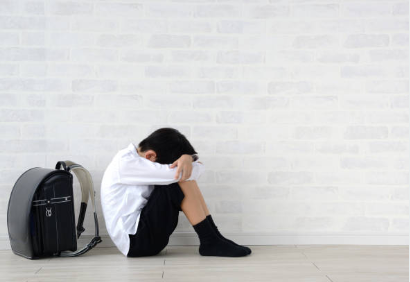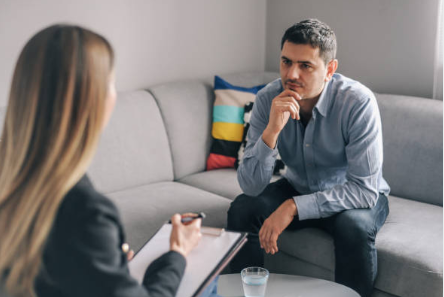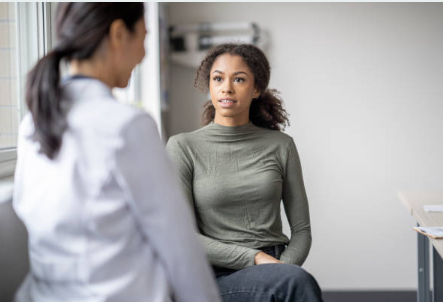Self-Help Anxiety
Developing a technique to calm yourself when experiencing anxiety can be a life-saver. By practicing techniques to calm yourself, you can learn to recognize and control your irrational fears. The key is to make the practice as systematic and ongoing as possible. This will help you to learn to recognize and control your anxiety before it overwhelms you.

Selfpause Affirmation App
Download the app to get 1,000’s of affirmation meditations and everything you need to write, record and listen to your own.
Techniques to calm self-help anxiety

One technique that can help you calm down is counting backwards. This technique can be very simple, or it can be extremely complicated. It helps you to move past unhelpful thoughts, as well as give you a sense of perspective on your situation. Another technique to calm yourself is to write down thoughts that cause you anxiety.
The fifth technique to calm yourself is to focus on the present moment. By focusing on your surroundings, you can distract your mind from your anxiety. By focusing on your breathing and focusing on your surroundings, you can reduce your feelings of anxiety. Practice these techniques every day to keep your anxiety at bay.
Keeping a journal to record your anxiety symptoms can also help you learn about anxiety. Talking to other people about your experience can be helpful, because it can help you feel less alone. Another good option is to visit an Online forum or talk to a trusted family member. Finally, remember that you are not your anxiety; it’s a mental health condition.
Distractions

Distractions are a great way to deal with short-term anxiety, but the problem is that they can only distract you so much. Trying a different activity or a new hobby can help divert your attention from your anxiety. In addition, it can help you relax and fall asleep at night. In a way, distractions can also give you a mental vacation from anxiety.
However, distractions are not ideal as they can reinforce the thought that you are afraid. Besides, distracting yourself from the core issue can also make your unwanted thoughts more persistent. If you use distractions for self-help anxiety, you should consider what type of distractions are best for you.
In the study, participants rated their anxiety on a 100-point scale. They were also asked to rate the contents of their thoughts during each condition. The results showed that subjects’ anxiety was elevated during the Anticipation condition, and that they attempted to suppress unwanted thoughts in the Self-distraction condition.
Problem-solving

Using structured problem-solving techniques is a great way to cope with anxiety, and can be very beneficial if you have an anxiety disorder. Taking medications is not a permanent solution and should only be used as a last resort. It will make you feel drained and irritable in the short term.
The main aim of problem-solving therapy is to help you adopt a positive mindset and learn new coping mechanisms. The techniques include identifying the problem and generating ideas for solutions. Then, once you’ve chosen a solution, implement it. The process can be carried out in a variety of settings and situations.
Problem-solving is an important life skill that can be learned and practiced. Learning how to effectively solve a problem is an essential skill and can help clients cope with the challenges they face every day. Problem-solving worksheets are great for this, as they help adults go through a step-by-step process to generate solutions.
When faced with a stressful situation, identify the triggers that trigger your anxiety. You might find that it’s the thought process that is frightening, rather than the situation itself. Try to write down your thoughts in a journal, or discuss them with trusted people. Also, remember that physical activity is an effective way to relieve tension, so make time for it. Lastly, avoid using drugs or stimulants.
Writing out thoughts

One way to relieve anxiety is writing out your thoughts and feelings. By writing down your thoughts, you give yourself a space to reflect on them and gain insight into how to cope. This can help you feel more in control and empowered. It also helps you identify negative thoughts and anxiety. The act of writing may also have other benefits as well.
Writing your thoughts down may help you identify your triggers and come up with effective coping mechanisms. It also gives you a chance to explore your options and explore possible solutions. By writing down your feelings and thoughts, you can improve your quality of life and lessen the effects of anxiety on your life.
Writing your thoughts in a journal is a great self-help anxiety method. You can use different forms of journaling, depending on which method works for you. A professional can also help you, but you should be aware that you may need more help for some anxiety disorders than others. If you do need professional help, consult a counselor or doctor.
Writing your thoughts in a journal can help you identify your triggers and feelings. It can help you think about other ways to cope with your anxiety. It also helps you learn more about yourself and your body. By writing down your thoughts and feelings, you can begin to identify what triggers anxiety. By putting your feelings into words, you can then create new strategies to combat them.
Talk therapy

In anxiety therapy, clients learn to challenge their distorted, negative thoughts with more realistic, reasonable ones. These techniques may include using Occam’s razor, weighing the pros and cons of worrying, and determining the most realistic outcome of any situation. These techniques can be adapted to meet a range of emotional responses.
Self-help anxiety therapy may involve a variety of techniques, such as mindfulness and relaxation techniques. Other techniques may include recording and exploring your personal triggers. For instance, you may write a list of all of the situations that cause you the most anxiety, ranking them according to their severity. Then, you may gradually expose yourself to those situations, practicing relaxation techniques until you are no longer afraid of them.
Cognitive behavioral therapy is another option. This type of therapy focuses on improving patients’ interpersonal and cognitive skills, particularly those related to emotion regulation. In addition to helping patients learn how to control their own emotions, DBT also helps patients learn to accept themselves. It may help them develop coping skills, such as learning to engage in social activities and implementing mindfulness techniques.
A variety of anxiety therapies are available, including online and in person sessions. For the most effective results, the therapy should be tailored to the individual’s symptoms. If the disorder is serious, a psychiatrist or psychologist may be needed. These professionals specialize in mental health and can diagnose and treat anxiety. They can also provide counseling and medication.
Rewards
Rewarding yourself for self-improvement is an important self-help technique. It helps you overcome your anxiety by celebrating the small, positive victories in your life. You can do this in many different ways, from writing down your favorite memory to buying new bed sheets. Whatever the method, make sure to be consistent.
Our Top FAQ's
Some common signs of anxiety include excessive worry, restlessness, difficulty concentrating, irritability, muscle tension, and sleep disturbance. It’s important to remember that everyone experiences anxiety differently, and it’s normal to feel anxious in certain situations. However, if your anxiety is interfering with your daily life, it might be helpful to seek professional help.
There are many strategies that can be helpful for managing anxiety in the moment. Some examples include: taking deep breaths, using positive self-talk, engaging in physical activity or other distracting activities, and setting aside time to relax or practice mindfulness. It’s important to find what works best for you and to have a few techniques in your toolkit that you can use when you’re feeling anxious.
Negative thoughts can contribute significantly to anxiety, so it’s important to learn how to challenge and reframe them. One technique for doing this is called cognitive-behavioral therapy (CBT), which involves identifying and changing negative patterns of thinking and behavior. Other strategies for reframing negative thoughts include looking for evidence to support or refute the thought, considering alternative perspectives, and using positive self-talk to counter the negative thought.
Relaxation techniques, such as deep breathing and mindfulness, can be very helpful for reducing anxiety. Deep breathing involves taking slow, deep breaths in through your nose and out through your mouth. This can help you relax and calm your mind and body. Mindfulness involves paying attention to your thoughts and feelings in the present moment, without judgment. This can help you become more aware of your thoughts and emotions, and can also help you let go of negative thoughts and focus on the present.
Making lifestyle changes, such as getting regular exercise, eating a healthy diet, and getting enough sleep, can also help reduce anxiety. Exercise can help reduce stress and improve mood, and a healthy diet can provide the nutrients your body needs to function optimally. Getting enough sleep is also important for managing anxiety, as lack of sleep can increase feelings of stress and anxiety. It’s important to find a balance that works for you and to prioritize self-care in order to manage your anxiety.
